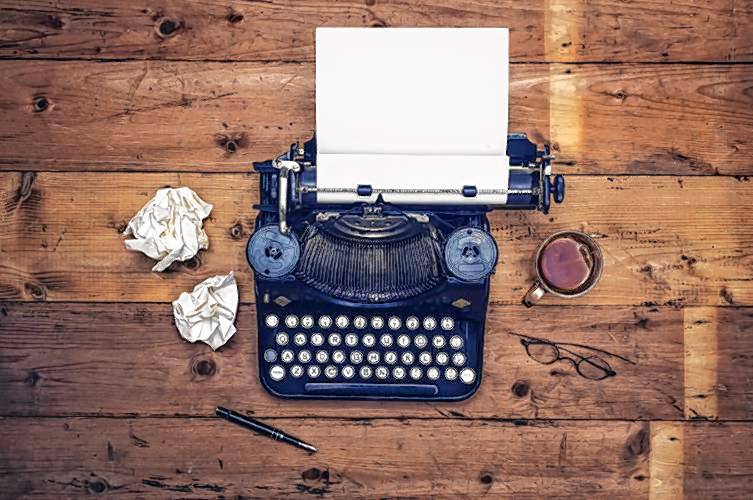My Turn: Will knowing our own hearts save us?

mactrunk mactrunk
| Published: 11-05-2023 11:11 PM |
Bertolt Brecht wrote:
“What kind of times are these
when a conversation about trees is almost a crime
because it implies silence about so many atrocities.”
Again and again we ask, what kind of times are these. We ask as individuals, and as countries, when we witness the monstrous suffering that others are enduring and, moreover, that the savagery is instigated and committed by people usually very much like ourselves. It is so easy to fall back to thinking in dichotomies: Black/White, Arab/Israeli, Republican/Democrat, God/Devil; over and over creating one more version of good and evil.
Given that I am in my 80s, my first awareness of what I termed evil was when I became aware of the concentration camps in Nazi Germany. I wondered, indeed, agonized over, both how I could have survived Belsen and, just as importantly, how I would have reacted had I been forced to witness a roundup of old friends and neighbors.
I am no closer to the answers than I was at 15, though I keep asking. I am a fearful woman; empathy is the most important value to me but I know my brain would undoubtedly tell me to run and hide.
Article continues after...
Yesterday's Most Read Articles
 My Turn: Quabbin region will never see any benefits from reservoir
My Turn: Quabbin region will never see any benefits from reservoir
 Renovation of vacant Greenfield house will help those ‘priced out’ of home ownership
Renovation of vacant Greenfield house will help those ‘priced out’ of home ownership
 As I See It: Between Israel and Palestine: Which side should we be on, and why?
As I See It: Between Israel and Palestine: Which side should we be on, and why?
 Attorney seeks dismissal of RI man’s DUI charges in Northfield crash that injured seven
Attorney seeks dismissal of RI man’s DUI charges in Northfield crash that injured seven
 New USDA offices in Greenfield to aid staffing increase, program expansion
New USDA offices in Greenfield to aid staffing increase, program expansion
 Heath voters OK $1.6M town budget, school spending
Heath voters OK $1.6M town budget, school spending
But even more frightening was the question whether I myself was capable of doing evil to others.
It can be such a petty inane thing that awakens our tendency to react quickly and without forethought. The other day I was sitting in my yard listening to the leaves fall from the old maple. Content. My mind was at peace for a moment. Then I noticed one browning goldenrod swaying against the front window. It offended my aesthetic and I rose to yank it from its place, return the little garden to symmetry. Violence gripped my soul. Then I noticed the goldenrod’s swaying shadow on the clapboards. Immediately its clarity and elegance stayed my hand.
A shadow saved me from an act of foolish destruction. By chance, I happened upon another view of the flower. And of myself. Had I acted I would not have wounded anyone, or caused profound suffering, but the impulse to assert my own preference, my own self over another being, violently if necessary, could not be denied. Were I in an extreme situation … a war, a refugee camp without water or food for my child, or forced to watch my homeland invaded by tanks and missiles, what then?
Recently, I read “The Plague: Living Death in Our Times,” by Jacqueline Rose. She said two things that struck me:
“If you can acknowledge the complexity of your own heart, then you’re not going to look for scapegoats.”
“Only if you admit your ambivalence toward even those you love best is there the faintest chance that you will reach out across the world to everyone, including your putative enemies.”
Recognizing and acknowledging our own vulnerabilities, motivations and whimsicalities is a daunting and ongoing task. Much of who we are is brewing in the unconscious.
Furthermore, neuroscientists are constantly revealing new marvels in the brain’s cellular and chemical makeup which, undoubtedly, affect our thinking and feeling. To echo Emily Dickinson, “The Brain — is wider than the Sky.” And, like space as viewed through the Hubble telescope, it is becoming wider and wider.
We know that Homo sapiens will always be influenced by a full range of emotions and that empathy and aggression can be at war within all of us. And I am sure that no matter how closely some of us examine our own feelings, decisions and reactions, it will not change the situation of over 8 billion people struggling to exist in a chaotic and resource-depleted world. And where leaders with sociopathic personalities gain power and benefit from the rampant disorder, further fueling our demise.
I am often naively eager to find answers to the insoluble questions of being human. Perhaps it is part of our chronic and insatiable need to give meaning to any narrative we create for ourselves.
Is there really any peace of mind to be found by uncovering some of our own contradictions? Would it enable us to be more generous in our judgments? And to forgive others, even our supposed enemies who are never less than shadows of ourselves? Is the sanest path to quietly and respectfully say, I do not know the answers, and simply take one another’s hand in sympathy?
Margot Fleck is an artist who lives in Northfield.

 My Turn: Towns could abolish elections and embrace real democracy: Sortition
My Turn: Towns could abolish elections and embrace real democracy: Sortition Andrea Davulis: The northern spotlights
Andrea Davulis: The northern spotlights Crystal Smith: Disappointed with the town of Heath
Crystal Smith: Disappointed with the town of Heath Michele Craig: Deerfield church should follow pope’s lead
Michele Craig: Deerfield church should follow pope’s lead
